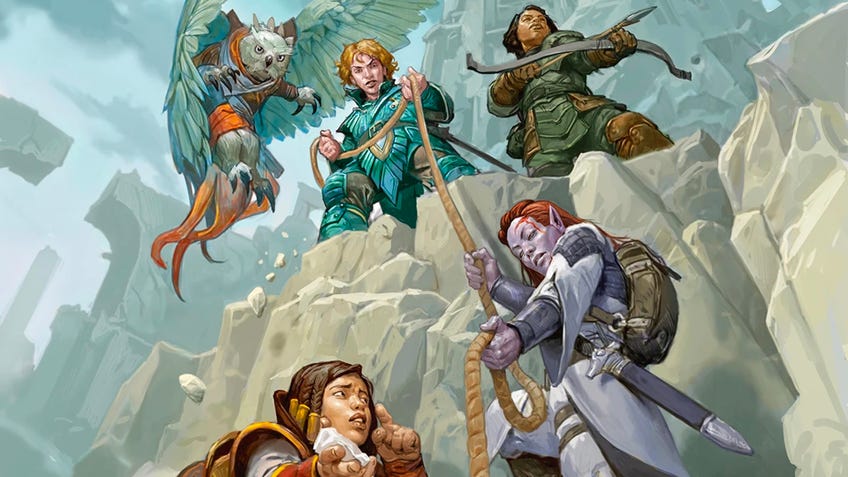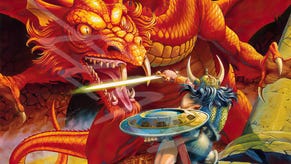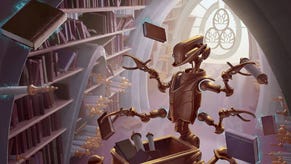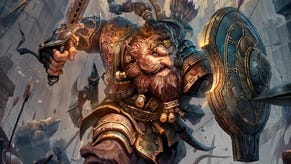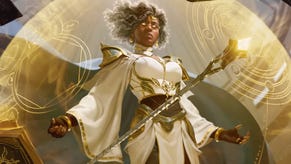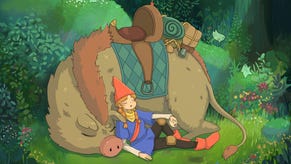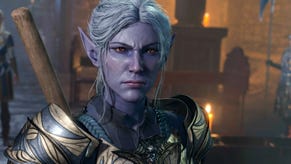Dungeons & Dragons in 2021: Essential evolution makes the RPG bigger and better than ever, but work remains
Changes are coming, however slowly.
Challenges with the ongoing pandemic aside, Dungeons & Dragons is more popular and profitable than ever before. Acknowledging the continual stream of podcasts, streams and digital accessibility through Roll20 and D&D Beyond, the tabletop roleplaying game is inviting new players into the hobby in a huge way.
This year, personalities and creators found exciting ways to advertise the game through events such as D&D Live, an annual live-play streaming event that saw celebrities such as Jack Black, Kevin Smith and various WWE wrestlers join in on the roleplaying fun. Outside of collaborative events, Wizards of the Coast is branching D&D into other intellectual properties. Most notably, Adventures in the Forgotten Realms, a Magic: The Gathering crossover set released earlier this year which featured some of D&D's most beloved characters in cardboard form. It was so popular that Wizards of the Coast will release a second MTG offering in Commander Legends: Battle for Baldur's Gate in Q2 next year. Either way, D&D is evolving in new and appealing ways that will extend into 2022 and beyond.
With the increasing popularity of D&D, players are changing how they approach the tabletop roleplaying game. Traditionally speaking, D&D 5E has offered a heavy emphasis on combat as a means to progress the story. Nowadays, however, a number of players are trading combat in exchange for narrative and character progression, perhaps mimicking qualities commonly seen on Critical Role. Combat is increasingly seen as a foundation for inexperienced DMs to help structure a campaign before settling into a heavier storytelling narrative once they become comfortable. Often combat can grow cumbersome yet abrupt, especially for players who have created bonds with their character and are unwilling to lose them through an improper fight. Naturally, this varies from playgroup to playgroup, but D&D is becoming less about fighting monstrous dragons and more about building the landscape surrounding them. And honestly, it's a good thing.
Not only are players using D&D as an online social construct, they are finding escapism through a turbulent time.
It's likely the shift came around due to the ongoing pandemic, with restrictions limiting the ability to see those we care about - and that care feeding into our D&D experiences. Through digital innovations such as Roll20 and D&D Beyond, players can maintain the routine of keeping in touch while rolling dice and building captivating stories together. Not only are players using D&D as an online social construct, they are finding escapism through a turbulent time - and that escape is comforting even for a few hours a week. With the emphasis on storytelling rather than monster-slaying, it's introducing a new approach to D&D that is sorely needed and will only entice more players to the game long-term.
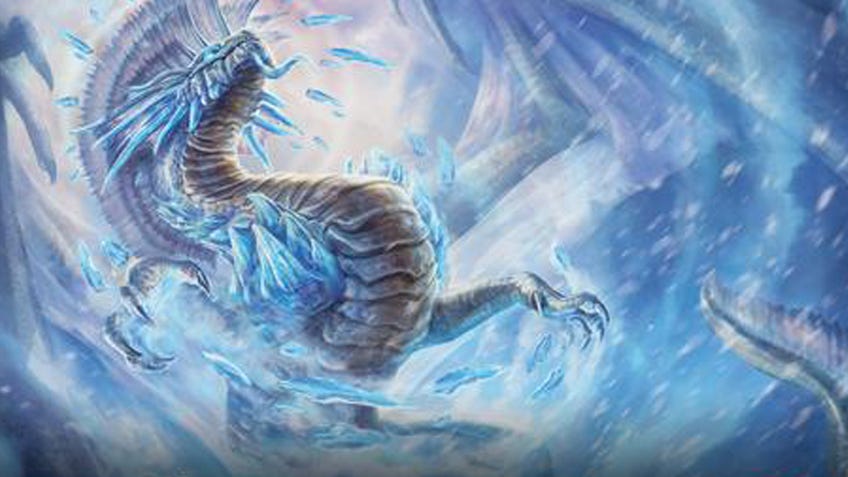
Even Wizards of the Coast is acknowledging the trend with its latest release, Strixhaven: A Curriculum of Chaos, a sourcebook that crosses over with an MTG set released earlier in the year, Strixhaven: School of Mages. The school, which is found on the plane of Arcavios, is known as the most elite university in the multiverse where players take the role of budding first-year students. As you can guess, this offering cares less about combat and invests more in the social aspect (and woes) of student life.
Then you have The Wild Beyond the Witchlight, a D&D 5E sourcebook that encourages progression through performance and entertainment, which once again ignores the desire for conflict. As such, The Wild Beyond the Witchlight is regarded as one of the better D&D products for 5E, as it marries a lavish carnival setting by pulling off a dramatic heist to round out the story.
Fizban's Treasury of Dragons, meanwhile, provided an in-depth look at the hallmark scaly beasts of the franchise. While the sourcebook is mostly aimed at DMs, Fizban's Treasury of Dragons offers a wealth of information for those wanting to flesh out dragons in their campaigns. The book isn't just about creating a compelling end boss either; Fizban's Treasury of Dragons accommodates dragons of all kinds, whether through an NPC or owning one as a loyal companion. It's as if Wizards of the Coast is giving personality to the dragon species without falling into the same classic tropes, which feels largely overdue given the age of the fantasy roleplaying game.
Instead of addressing the issue of racial traits, the publisher introduced a “custom lineage” option that unlocked racial restrictions on bonuses, skills and proficiencies.
Even with the remarkable growth of D&D, there are nagging issues with how the RPG approaches racial traits which are deeply rooted within the game, and how these habits remain relevant today thanks to traditionalism.
Wizards of the Coast said last year that future sourcebooks would depict all of D&D’s races in similarly “relatable ways” to eliminate problematic aspects. However, there has been little motivation to change this concept to meet community standards, such as tying D&D characters to inborn violence, intelligence or honour to a race.
Shifting that creative freedom onto DMs to manage isn't addressing the issue; it's merely passing it on to the DMs to be held accountable instead. When creating a character in D&D, ability scores are usually tied to race, such as elves gaining an inherent +2 to dexterity.
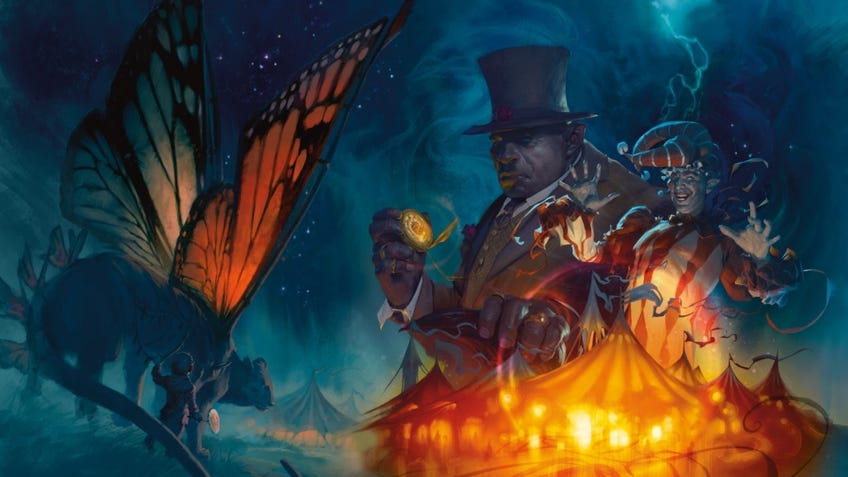
Instead of addressing the issue of racial traits, the publisher introduced a “custom lineage” option in last year's Tasha’s Cauldron of Everything, which unlocked racial restrictions on bonuses, skills and proficiencies for players to work with. Both Fizban's Treasury of Dragons and Wild Beyond the Witchlight didn't improve on the effort, and merely cast the issue to one side.
However, with the release of Strixhaven: A Curriculum of Chaos earlier this month, the sourcebook introduced polyamorous relationships, romanceable NPCs and the ability to gain inspiration from these relationships. Despite the emphasis on socially-skewed gameplay experiences, this is another step toward rewarding you for playing D&D through non-traditionalist means.
It will be interesting to see how Wizards of the Coast approaches D&D through digital means since there is a huge emphasis on tabletop play.
Known issues aside, next year offers plenty of encouragement for budding D&D enthusiasts. There will be two major classic D&D settings that will come to 5E in 2022, with a third classic setting coming in the form of a cameo appearance. As announced by Wizards of the Coast, the returning settings will be "published in formats we've never really seen in products before", with teases this could feature in a digital space for future releases. It will be interesting to see how Wizards of the Coast approaches D&D through digital means since there is a huge emphasis on tabletop play - perhaps shifting some of the player base digitally, as with Magic: The Gathering and its Arena client. Either way, this is thinking ahead with the ongoing pandemic in mind, allowing better ways to engage with the game without compromising players’ safety.
Going further, there will be another fan-favourite setting making a full appearance in 2023, with the next major iteration of D&D coming in 2024. Although there's no official wording this will be Dungeons & Dragons 6E, the upcoming release will include new versions of core rulebooks such as the Dungeon Master’s Guide and Player’s Handbook. Not only is the next evolution of D&D currently under development, the release will also mark the 50th anniversary of Dungeons & Dragons in 2024. All will be unveiled next year. Despite ignoring some problematic issues, there is no better time to fall into the game, as new players can help D&D pull away from old habits.
